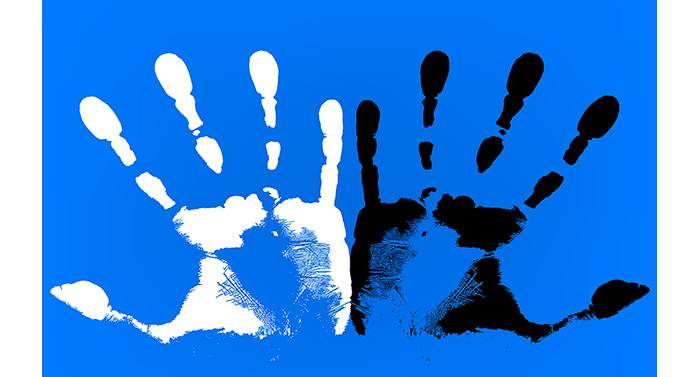As I look back, one of the most amazing things that Dad imparted to me was a love for African American People. I can’t figure out where it came from. He came from a culture and a time which was quite frankly quite bigoted, and somehow he brought very little of that with him. He seemed to transcend that culture and to impose his own belief in its place: the belief that God had created all people in his image, and that all are due love and respect.
I think I mainly picked this trait up by example, because he never explicitly taught us very much about it. I know that occasionally he would give gifts and do special things for African American people that he came in contact with, and I could feel his joy in doing so.
One time he took my two brothers and me to New York, and we did many memorable things. But perhaps the most memorable of all was a trip through Harlem. We were in a cab, and Dad asked the cab driver where he grew up. The man said “Harlem.” Dad said “Well, could you give some ‘white honkys’ a tour of the place where you grew up?” The driver said “Sure,” and we were off. We drove up and down the streets of Harlem, and the man pointed out the bombed-out buildings where he had grown up, and where the drug dealers were. He described the perils he had faced growing up. I thought back to my upper-middle-class neighborhood and all the privileges I had enjoyed growing up, and I was overcome with two things: a profound gratitude for all that I had been given, and a strong desire to help those who came from less fortunate circumstances. Given the historic challenges faced by the African American community, this especially included these folks.
There are a number of stories I could recount of ways over the years that Dad reached out to African American folks, but the one that sticks out the most is more recent.
A few years ago, Dad called up and said that he had some basketball game tickets he would not be using. (Given his years of seniority with the university, Dad had some fantastic seats.) David McKinnon, the CEO of the company for which I work, wanted some tickets, so I arranged for David to go pick them up.
The next day, David came into my office, and I asked him how the game was. He said it was great, the seats were awesome, but then he had a quizzical expression on his face. He said, “Your Dad did something quite unusual last night. He gave me the tickets as we had arranged, and then he gave me two more tickets and said, “Go up to the first clean-cut African American person you find and give them these tickets.” David said, “But these are great tickets. They ’ll probably just sell them to someone else.” Dad said, “That’s okay. But from one rich ‘white honky’ to another, I feel that we owe it to African American people to help them in whatever way we can. They have had to labor under many, many hardships which we never had to encounter, and I just want to help.”
I also remember when Mr. Tipton, the father of a close friend of mine who was black, passed away. I mentioned it to Dad, and he said, “we’re going to the funeral.” I don’t believe he had ever met Mr. Tipton, but he was close to my friend Prentice, and he wanted to stand with him at the time of his father’s death. We were some of the only white people in the church, and I was so proud and thankful to be there, with my Dad, standing with a black brother to mourn the death of his father. Only now, with the passing of my own Dad, do I understand why he felt so strongly about going to that funeral. He had lost his own father, he knew the significance of the moment, and he wanted to be there for Prentice and to honor Prentice’s father.
Dad successfully stopped a heritage and tradition of prejudice right in its tracks, and in fact reversed it. I was raised with a deep love and respect for those of different races, and especially for African Americans. I told Prentice one time, “I feel like I’m a black man imprisoned inside a white body.” It’s a lesson to me of how much we can mold ourown future, and how much we can cast off the undesirable parts of our heritage and replace them with God’s own approaches.
This article is excerpted from an unpublished book, From Dad to Son: Things My Dad Taught Me About Life, © 2002 Ted Kennedy. Used with permission.
Top image credit: image of white and black hands symbolizing racial harmony, from Bigstock.com, © Elaineitalia, stock photo ID: 411401. Used with permission.
- Intro – Things My Dad Taught Me About Life
- Story 1 – Trust Your Strengths and Know Your Limits
- Story 2 – One Dad and One Father
- Story 3 – The Debtor Who Wouldn’t Go Away
- Story 4 – Waiting to Honor
- Story 5 – Being Generous toward God
- Story 6 – I Would give it All Up in a Second
- Story 7 –Telling the Next Generation
- Story 8 – With Love Toward All People
Ted Kennedy is a life-long member of The Servants of the Word. He leads the Servants of the Word household at the Brotherhood Center in Chelsea, Michigan, USA.



